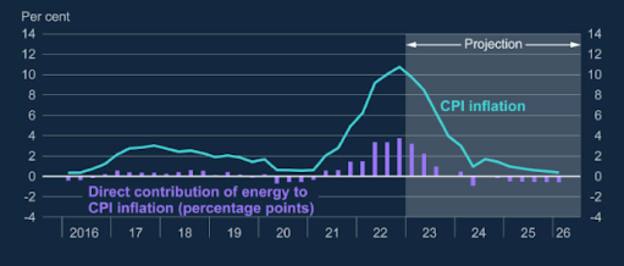
The Bank of England governor Andrew Bailey has signalled that the base rate may have reached a stable point and said there is no current evidence to suggest a further increase is needed at this point.
The base rate currently sits at 4 per cent as of the last meeting of the monetary policy committee at the beginning of February - a fifteen year high.
In a speech made yesterday on the cost of living, Bailey said since the last meeting of the MPC the economy is “evolving much as we expected it to” and said nothing is decided yet as to the outcome of the next MPC meeting that is due to take place towards the end of March.
“Inflation has been slightly weaker, and activity and wages slightly stronger, though I would emphasise ‘slightly’ in both cases. A further set of data will be coming in before our next monetary policy decision later this month,” Bailey said.
“At this stage, I would caution against suggesting either that we are done with increasing bank rate, or that we will inevitably need to do more. Some further increase in bank rate may turn out to be appropriate, but nothing is decided.”
Bailey’s comments follow predictions made by experts last month that the base rate will peak at 4.25 per cent at the end of March before falling throughout the year.
Commenting on the Bank’s monetary policy and its response to rising inflation, Bailey said: “if we do too little with interest rates now, we will only have to do more later on. The experience of the 1970s taught us that important lesson.”
Bailey again referred to the shocks the UK economy has been hit with over the last few years and outlined the impact these are having.
“These include the change in our trading relationship with the European Union, the Covid pandemic with associated bottlenecks in global supply chains, and the sharp rise in global energy prices related to Russia’s brutal war on Ukraine and its people,” he said.
“For the United Kingdom, these shocks have eroded the terms on which we trade with the outside world. The prices we can get for the goods we sell have not kept up with the prices we have to pay for the goods we buy. This has made us poorer as a country.
“The fall in our national real income has manifested itself in a rise in the prices we have to pay for the things we buy as consumers,” Bailey said.
CPI Inflation projection with direct energy contribution
Based on market interest rate expectations
Source: Bank of England, March 1 2023
The Bank’s monetary policy committee has projected that inflation will fall sharply over 2023 as last year’s large increases in energy prices “drop out” of its annual calculation.
Bailey explained that looking ahead, with the annual adjustment in the energy price guarantee, the typical energy bill is set to rise to £3,000 in April.
“But to calculate the annual inflation rate at that point, we have to compare with the April 2022 bill, which had already risen significantly,” he said.






